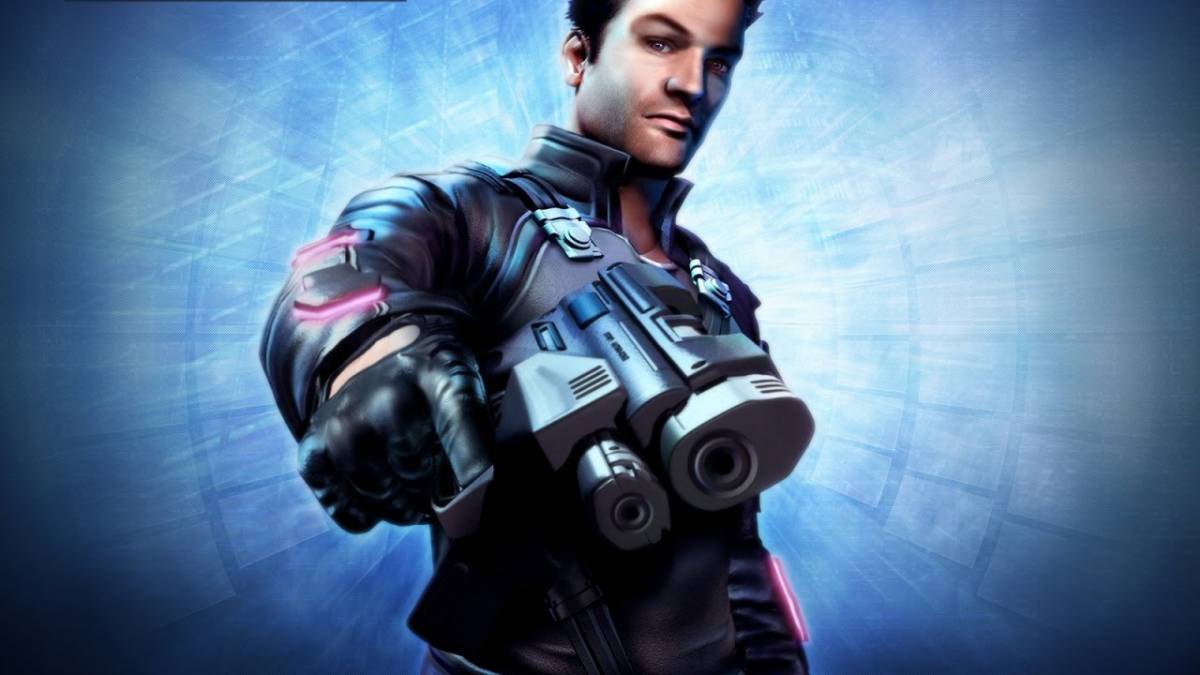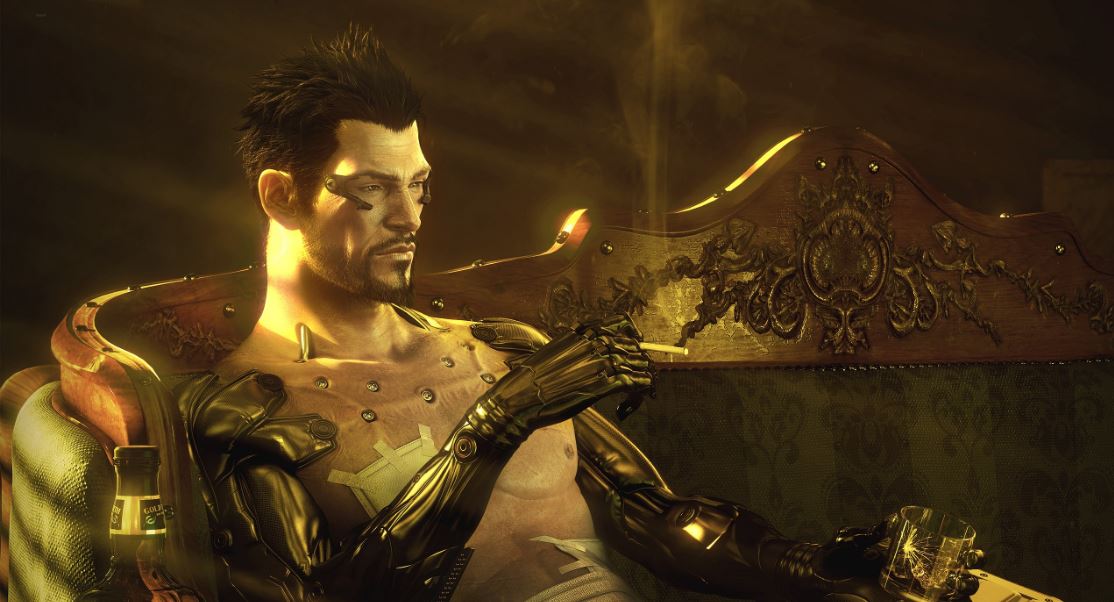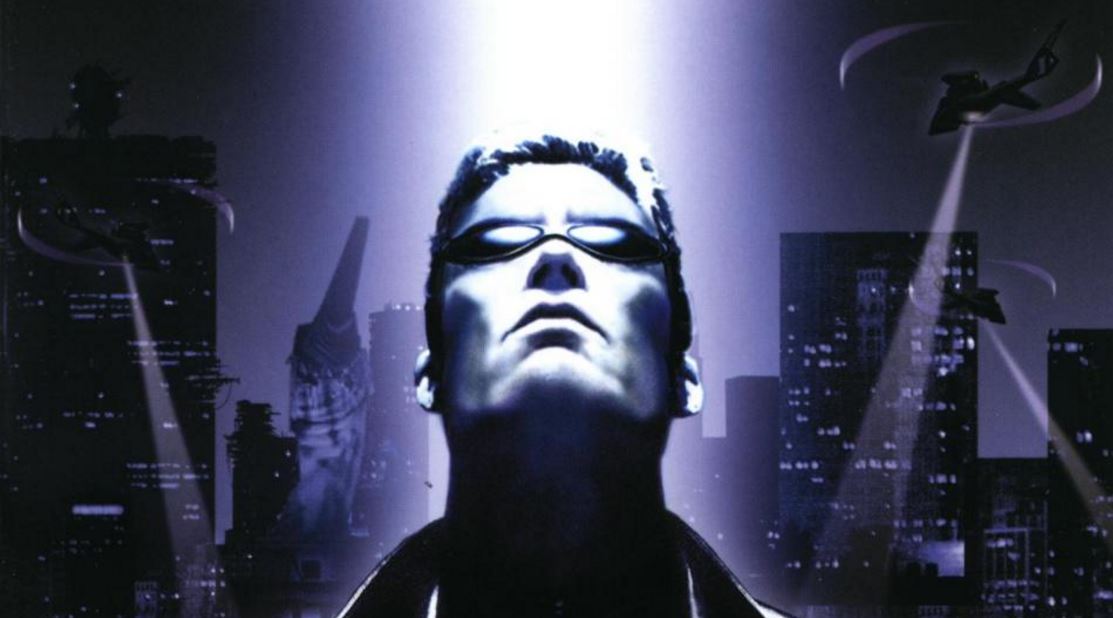I remember being a fresh-faced young fourteen year-old, clutching a copy of this new dark sci-fi thriller Deus Ex. Getting home and falling into this world of robots, cyborg body parts and a ridiculously engaging plot, with actual voice acting!
I have to admit, in those days I was a bloodthirsty little bugger coming fresh from Quake 3 deathmatches, and so I left a trail of mangled bodies behind me in my first playthrough. But Deux Ex isn’t designed to be played that way, and I grew familiar with that ‘EEEEAAAAARGH’ noise, and the sight of the camera zooming out from JC Denton’s own bullet-riddled corpse following yet another failed mission.
I’d return to Deus Ex time and again, and when I managed to scratch the CD to death on my bedroom floor (I was a teenager), I even rebought the PS2 port. Then I finished it and, over exhaustive playthroughs, found all the easter eggs I could – before discovering GameFAQs, and all the rest.
So desperate was I for some more God-machine goodness, I even bought 2004’s ‘Invisible War’, the much maligned sequel – and despite its flaws, I enjoyed it. I was immersed in this world, and I couldn’t get enough of Denton’s impact on it. I felt like I had actually changed an entire world, and that my decisions had made something of a difference – even though Invisible War’s storyline retconned the entirety of the original game, to the point that all of the multiple endings had come true.

All things being equal though, I enjoyed Invisible War – I felt like I was in the same world, with the same ideas and the same attitudes, just at a different time. Sure, the storyline was stupid and the protagonist a complete douchemongler, but I still felt like I was in the same universe, and I wanted to find out what was going to happen even if I didn’t care about who was doing it. The world around me was what led me further in.
Then came the inexplicably well-reviewed ‘Human Revolution’. Lauded as ‘The thinking man’s shooter’ by various rags, it was considered to be ‘Gears of War’ for someone who likes to think about things.
I agree with fifty percent of that. It is like ‘Gears of War’. Cover-based shooting has annoyed me for some time – this idea that a human cannot react in time and realise that standing behind a wall might help you not get shot really irks me. I do not like any game where you need to hammer a button to glue your rear end to a bit of wood in order to prevent enemies shooting you; that same piece of wood will provide zero protection, however, if you just happen to stand behind it?
Is it a thinking-man’s game? It’s remarkably linear, with a few side-quests, and the missions do generally have multiple ways to solve them – apart from the boss-fights, where it comes down to ‘do I shoot them or explode them?’

This was particularly infuriating, as I had developed my version of Adam Jansen as a master hacker, who could turn the environment to his advantage rather than needing to use force. Which was wonderful when I was trapped in a room with an armoured killing machine filling the air with lead, and all I had to fight them with was a shock prod and seven hundred lockpicks.
But what annoyed me most was Adam Jensen. And I know it’s childish, but I know JC Denton needed to wear his sunglasses to conceal his augmented eyesight – while Jensen (WOW! IT RHYMES! THAT MEANS THEY MUST BE THE SAME!) had his built into his head? What possible function does that have? And isn’t that hugely dangerous in a fistfight? I can only imagine shards of glass being forced into his delicate eyes.
Well, that annoyed me most for the vast majority of the game. Then I got to the end. I finished it, because the ending of DE1 was one of my favourite endings of all time – that stark choice you had to make had huge ramifications for the world as a whole. Here, they tried to do the same thing, but the effect was annihilated by the fact that it was literally a choice of three ‘choose your ending’ buttons. No dialogue choices, no imagery, nothing – just three buttons. And the endings were basically the same, but with slightly differently coloured filters.

But I refused to give up on ‘Deus Ex’ – the series remains one of my favourites, and, despite being late to the party, I was reminded why only this week. The community for the original game is still running strong, and it’s made up of those same Blade Runner fans that it always was – the modding community is healthy, and is still creating even today, over a decade and a half after the release of the original.
And thus I arrive, late, at the point of this article: I’ve been replaying the original game this past week. There have been few games released that interest me (and I refuse to pay full price for Skyrim again), so I downloaded the game from GOG.com (get your games legally, people!).
Five minutes later, having redone the first mission, I had a quick Google, and found ‘The Nameless Mod’, a total-conversion mod for the original game, set in the Deus Ex modding forums at the time. I’m a sucker for metatextual postmodernism, so I couldn’t help but love the discussions about ‘trolls’ and ‘moderators’ that were coming up, and the concept of different buildings relating to different threads on the board.
But TNM is more than just a simple one-joke mod. Over a decade in development, it features a fully voiced plot and side missions that Ion Storm themselves would have been proud of – and in fact have endorsed. The game provides more of the same for those who were fans of the original, and a very cleverly planned faction system allows you to get involved in whichever way you choose; within five minutes of starting, I had discovered four different factions within the starting town, and met a huge number of characters.
If you’re tired of these new, oh-so-linear games and seeking a return to the glory days of first-person ‘stealth em ups’, give it a download – the game itself is cheap as chips, and the Nameless Mod itself is free to download, so what do you have to lose?
Some of the coverage you find on Cultured Vultures contains affiliate links, which provide us with small commissions based on purchases made from visiting our site. We cover gaming news, movie reviews, wrestling and much more.



